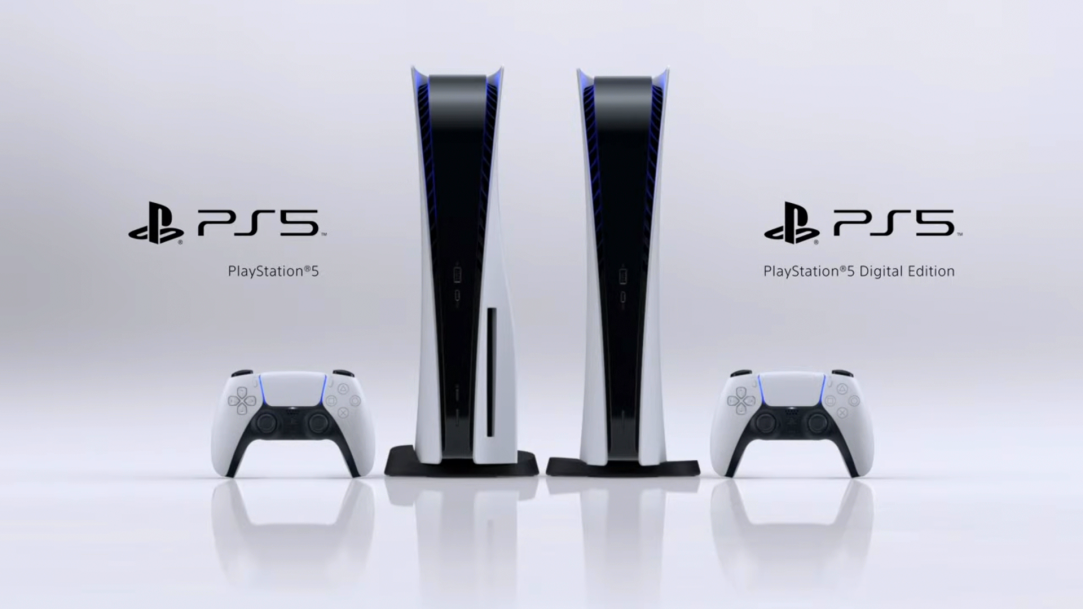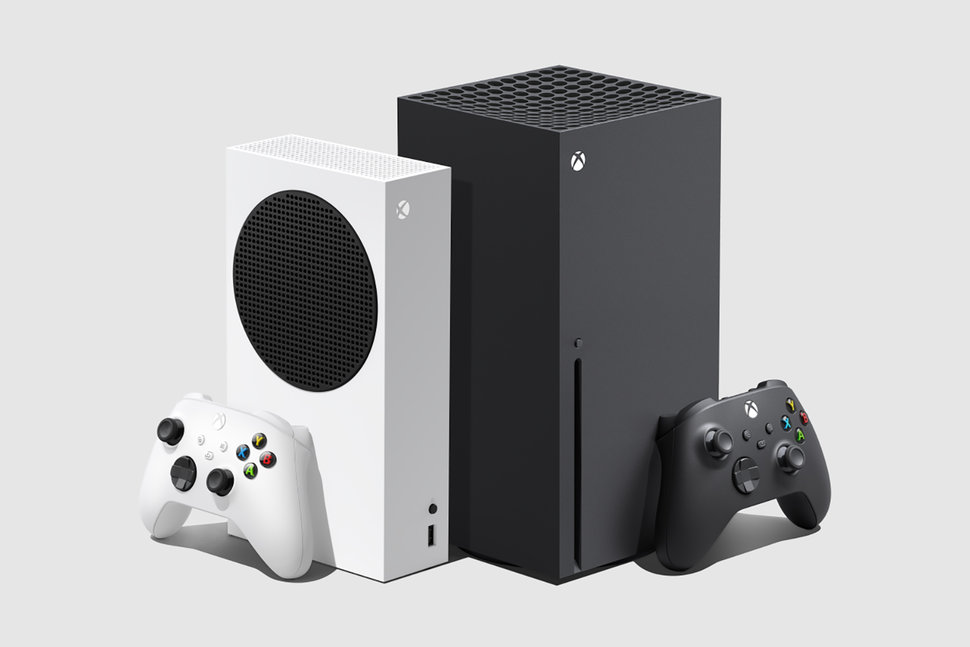The Future of Video Games and Consoles (and Preservation Thereof)
So we have now entered the the ninth generation of video game consoles. The Playstation 5 and Xbox Series-bleh have now come out and both are available in two versions: One with an optical disc drive and another, cheaper, digital-download-only version. As of writing the base Playstation 5 and Xbox Series-Whatever-It's-Called are outselling their cheaper digital-only counterparts, but I'm curious to know how that trend might change in the next five years or so. Because you might be inclined to believe that people would be more likely to go for the cheaper digital-only consoles.


To me this seems to be very much a transitional generation for consoles, namely a transition away from physical media. I wouldn't be surprised if this ends up being the last generation that offers physical media releases as an option. The only thing getting in the way of digital downloads completely replacing physical media releases is that for many it still isn't practical. Modern video games are taking up more and more space, increasingly in the double-digits of gigabytes, that's a lot of data to download, as well as store and the hardware is expensive. We are sadly long past the days of the sixth generation (PS2, Xbox, Gamecube .ect) where you would buy a game, insert the disc and play it. No day-one patches because the released game is a glitchy mess or doesn't run well *cough*Cyberpunk 2077*cough*, no required online connectivity even for a singleplayer game or restrictions on how many consoles that copy of the game can be played on. Streaming platforms like Google Stadia are a potential solution to some of these problems (except required online connectivity I guess) as well as a solution to the tiresome and expensive need to keep buying new hardware every five years or so to be able to play the newest graphically intensive games.

Earlier his month I made a post on Mastodon about my frustration with the constant barriers to entry to play video games and I think that streaming solves many of the problems that come with increasingly intense graphics of modern video games and makes them more accessable. However all this being said, the idea that streaming platforms will become the prime way of playing video games is something that I find... in a word: scary. In an ideal world it wouldn't be, but seeing the way the game industry behaves (I recommend checking out Jim Sterling on Youtube for some insight into this), it's not hard to see what problems will inevitibly arise. The nature of streaming video games means that those games are being run on the companies servers which send you a live video feed of the game while your controller inputs are sent back. The games themselves do not exist locally on your hardware at all. While Stadia for example offers games that are also available on other non-streaming platforms, they also offer Stadia exclusive games. This means that those Stadia exclusive games have no downloadable local versions at all, the games only exist on Google's servers. This raises some very serious concerns if, like me, you consider preservation of media important. It is well known that Google likes killing services and many people do not have faith that Stadia will survive for too long. So when Stadia shuts down, what happens to the Stadia exclusive games? Barring some leak of server-side Stadia game files or the developers re-releasing the games on another platform, those games will simply dissapear and you'll never be able to play them again. As a point of comparison: in January of 2019 the Wii's Shop Channel was taken offline, the Wii Shop Channel hosted WiiWare games which where downloadabe games exclusively developed for the Wii and purchasable only on the Wii Shop Channel. These WiiWare games have been preserved thanks to community efforts to archive the necassary files in a format that can still be downloaded and installed on a hacked Wii console or emulator (which is technically considered "piracy"). This is possible because these WiiWare titles where downloaded and stored locally on user's Wii consoles when the service was still online, making it possible to extract that data.
Even now when having client-side data of our games is still the norm, they are often so inter-twined with online services that we've lost the ability to play games that came out less than a decade ago. A good example is MAG: an online-only MMO FPS released in 2010 for the PS3. MAG servers where shut down in 2014 and since it had no offline component, the game is no longer playable in any respect. However some games have been able to be bought back online unofficialy thanks to community efforts to develop third party servers. An example of this is Phantasy Star Online, which was a console MMORPG for the Dreamcast (as well as other consoles and PC later on). Phantasy Star Online's official North American Dreamcast servers where shut down in 2003 and servers for other regions and versions of the game followed between 2007 and 2010. Despite this it is still possible to play Phantasy Star Online using one of the multiple third-party servers that are available, though this usually requires a hacked console and/or client. Games like Phantasy Star Online, Star Wars Galaxies and many others, as well as older (and sometimes radically different) versions of still online games, live on thanks to community effort which often requires reverse-engineering and is rarely helped and sometimes condemned by the companies that made them. Bringing back Phantasy Star Online was only possible because we have the game, we have the data to reverse-engineer off of and rebuild the required server software. With Stadia games this isn't possible because we don't have the data, it's all sitting on Google's server, all we get is a video feed. The best we can do is record ourselves playing it while it still exists and say "here, this is what the game looked like" but we can't make it playable again, not without somehow getting hold of the game's data.

So let's say, as a kind of "what if" scenario that the Playstation 6 and Xbox God-Knows-What-It'll-be-called end up just being stream boxes with all the games being hosted on Sony and Microsoft's servers. At some point those games will be taken offline, Sony and Microsoft shut down their PS6 and Xbox-Whatever streaming servers five or ten years after their launch. All those exclusives? Gone. Possibly even the multi-plats if they where only availible on streaming platforms. Sure there's always the possibility of these games being re-released in future to stream again. I can see Sony announcing at E3 2040 that a selection of classic PS6 titles will be made available to stream again on the PS8 to rounds of applause no-doubt. But besides likely succumbing to the same shutdown again eventually, it's likely these games will be "re-mastered" or even just be outright remakes, which is all well and good but that's not the same thing as preserving the game as it originally existed, warts and all. Speaking of which very often the "re-masters" of classic games we see have their own fair share of warts compaired to the originals and can sometimes end up being like the video game equivelent of George Lucas' Star Wars re-releases.
No matter what happens, one thing is for sure: we can't rely on these companies to take an interest in (or at least even facilitate) the preservation of video game history. Once they decide these games are no longer profitible they are of no interest to them. This is true for more than just the video game industry: When Yahoo shut down GeoCities they did so with no care or thought to how much early web history was going to be lost and why that matters. It was taking up server space and resources to keep running and was no longer profitable so they where going to throw it in the bin like and empty carton of yogurt. It is only thanks to the efforts of archivists who saw the importance of these old user created websites that we still have a good portion of GeoCities (and by extension early web history and culture) preserved.
What we need to understand is that Xbox Live, Playstation Network, Nintendo Switch Online, Steam, Stadia, Origin, World of Warcraft, Fortnite and countless more online platforms and games that are currently (or yet to be) online, will eventually be shut down. Will they be preserved? What will happen to your Steam library when Valve goes out of buisness? It is a matter of when, not if, these platforms go bust. There are potential ways of preserving most of what currently exists while I write this, but streaming as it is currently implimented by Google Stadia (and likely will be in similar ways by other companies) will undoubtibly change this and make it almost (if not entirely) impossible. Though Stadia may be a good solution to reducing barriers to access current video games in the short term, it can also be considered the most effective and un-curcumnventable form of DRM there is. Eliminating video game "piracy" alone will likely be a huge incentive for video game companies to embrace streaming. In this state, video games will not only become something that is no longer owned but will become temporary in their existence, no longer something that can be looked back on for years to come. We wouldn't except this of movies, tv shows or music and we shouldn't accept it of video games either. If we are serious about considering video games art, then we shouldn't let them be destroyed, we should seek to do whatever we can to preserve them.
So what do we do? In an ideal world, streaming of any video game could be offered by anyone with the reasources available to do so. This would offer all the benefits that something like Stadia provides but would also mean that the games would be available via multiple different stream providers as well as locally too. It would also mean no more "exclusives", anybody could play any game regardless of platform. It could also allow for things like mods and fan patches if the stream provider chooses to impliment them. This could be done in such a way that supports the developers while ensuring preservation and allowing for many of the benefits of locally ran games. Sadly though, I doubt this could be possible under current copyright laws and it would take some pretty radical changes which I doubt are realistic. The best we can do is put pressure on video game publishers to have their games available in a physical or downloadable format or at least commit to doing so after the platform it's published on in shut down. This would require a lot of public pressure from consumers though and if we want to generate that we need to teach people the importance of preserving these games... and all media for that matter.
I think there's another problem we should consider though. The reason more and more powerfull hardware is required to play games is due to the constant push for "better graphics" which has caused making a video game to become a massive undertaking needing to be done by massive teams of people (reminding you of anything?). Somehow despite having such a massive amount of people all working on one game, it still gets delayed (sometimes multiple times), the developers still get crunched to finish the game which very often it still ends up being a buggy glitchy mess on release. This is a problem streaming won't be able to fix. I think we should consider that there may need to come a point when a certain level of graphical capability is good enough. In my post I argued that was 6th to 7th generation graphics. Even if you disagree, I ask you this: Does every game have to look as good as Cyberpunk 2077? Does Cyberpunk 2077 have to look as good as Cyberpunk 2077? Is there a way all that work and resources could be better spent on a game? How much value does "good graphics" actually even add? When you consider the sacrifice being made for all that, does it really pay off?